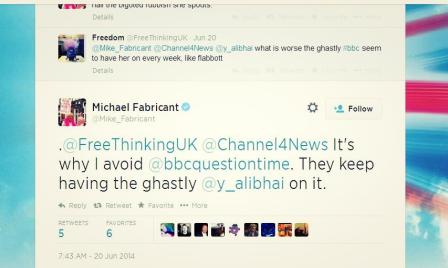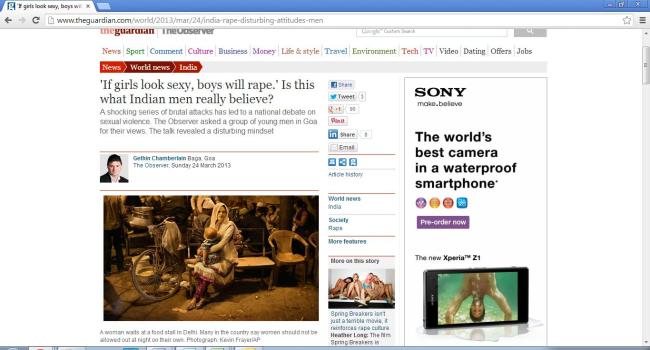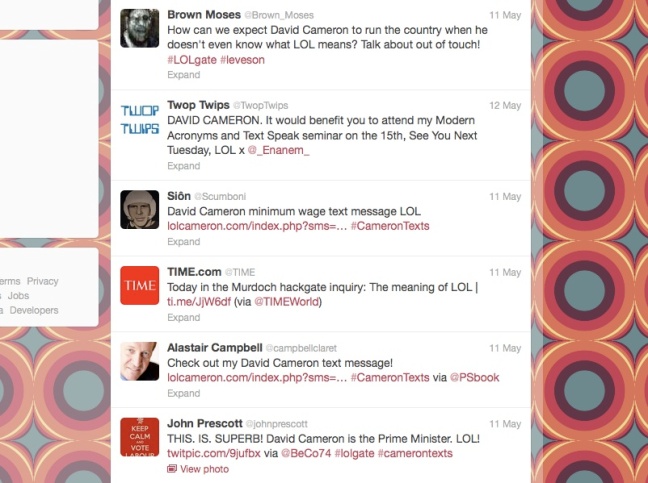The British have long prided themselves on being a tolerant society. My experience of studying and marrying a native gave me a unique insight into their love for queues, music, and refusal to kick up a fuss instantly. Infact,they are quite a simple lot – harmless, witty, theatre-going, a bit delusional about expectations of the English football team; in love with their pubs, banter, curry, and fish and chips.
Yet, when we read the papers or hear the local radio, watch television or social media – there are innumerable references to class, headscarves, halal meat, Islamic extremism, and the latest controversy – desire to punch a Muslim woman.
Just the other night, Tory MP Michael Fabricant took to twitter and said he would punch well-known journalist and author Yasmin Alibhai. Fabricant made the violent comment while watching an impassioned debate on Channel 4 with Brown and Former Radio 4 editor, Rod Liddle, discussing the release of his new book, ‘Selfish Whining Monkeys: How we Ended Up Greedy, Narcissistic and Unhappy.
What’s interesting is that the tweet has been retweeted 611 times and favorited by 344 people. Does this validate the idea, its okay to commit violence against a woman just because you don’t agree with her views?
In response to a Channel 4 tweet, yet again, Fabricant refers to Yasmin as ‘ghastly’ and talks about his reluctance to view BBC Question Time as a result of her regular appearance.

Fabricant apologised, but insisted Brown was utterly infuriating and he could never appear on a discussion programme with her.
In another instance, the potrayal in the media of a frenzied Islamic agenda in British schools compelled the Prime Minister to define ‘British values’.
A new investigation carried out by Ofsted, Birmingham City councils and Education Funding Authority, alleges hard-line Muslims are set to “take over” schools in Birmingham. The Trojan Horse letter alleged a socially conservative sect of Muslims were trying to get their own members on to governing bodies and ousting head teachers. But Inside story on Al Jazeera uncovered a different side. The so called ‘Trojan Horse’ letter was unsigned and undated, with some claiming it to be a hoax.
Yet, that didn’t stop Tory MP and Education Secretary Michael Gove from insisting on ‘British values’ to be inculcated in schools across England.
Has Gove acted foolishly? Is there any evidence to prove extremism is predominant in schools around England? Or is it another example of MP’s at the forefront of a distasteful Islamophobia campaign?
When asked about British values during a visit to Sweden, David Cameron said,
“I would say freedom, tolerance, respect for the rule of law, belief in personal and social responsibility and respect for British institutions – those are the sorts of things that I would hope would be inculcated into the curriculum in any school in Britain whether it was a private school, state school, faith-based school, free school, academy or anything else.”
There’s no harm in articulating the British institution and its values. However, when done as a counter-attack to alleged extremism in schools, based on a document that can’t be verified, the move can be viewed as antagonistic. In trying to perpetuate values, British politicians are unwittingly creating a theme of ‘them and us’ by excluding a certain section of society.
Less eyebrows would be raised if it was the British National Party or some right wing propagandist. But when it is Oxbridge-educated, self-proclaimed liberalist MP’s that claim equality, liberty and ‘the big society’ are at the the heart of their campaign, something’s incurably wrong.
Especially at a time where the ‘war on terror’ is a critical issue in the Middle East, and British jihadists are involved, MP’s should do more to subsume all sections of society than provoke anger.





